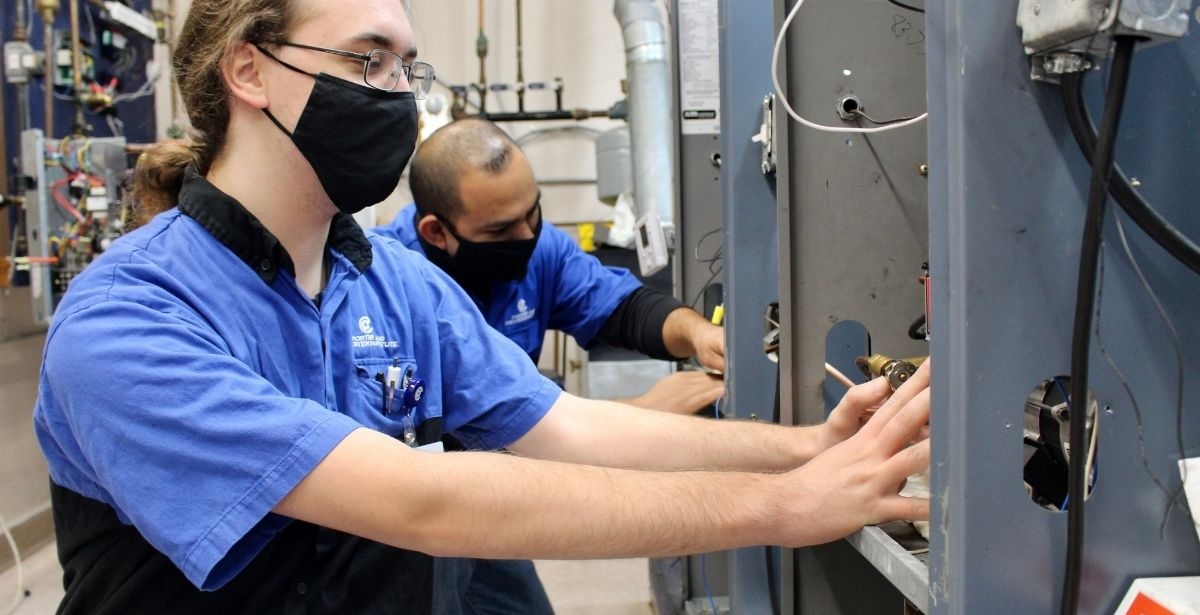
Is It Hard to Learn How to Fix Air Conditioners?
Air conditioning is a central component to almost any residential or commercial space, but we often take it for granted. We don’t pay much attention as the fan clicks on and off and we’re basked in cool air—until it doesn’t. That’s when you call in a professional—and pay a lot of money—to have the problem rectified. But what if you were that professional? With the right training, it isn’t hard to learn the skills to become an HVACR technician.
HVACR Technician Skills and Qualities
Before you dive into any professional trade, you’ll want to consider whether you’re cut out for the career. If you like basic mechanics and have always had a knack for repairs, you can learn the skills of heating, ventilation, air conditioning, and refrigeration. Here are some other skills that will come in handy:
- Problem Solving: Do you like puzzles? As an HVACR Technician, you’ll need to think on your feet and quickly diagnose issues and then find a solution.
- Critical Thinking: Some issues will be easy to recognize and solve, but some may require you to put on your thinking cap and dig below the surface.
- Customer Service: Although you’ll work with machines, your clients will be homeowners or building managers, and they’ll need to feel confident in your abilities and trust that they’ve been heard.
- Willingness to Learn: Most importantly, you need to be open to learning. You’ll need to learn the basics of HVAC, and also be willing to keep on learning as technology updates and industry trends change throughout your career.
What Will You Learn in HVACR School?
You’ll learn how to install, service, and repair air conditioners as well as heating, ventilation, and refrigeration units. You’ll also learn how to follow the proper safety precautions to keep yourself and your customers out of harm’s way. You’ll learn about:
- Electrical and mechanical principles of air conditioners
- Piping and tubing
- Chillers, cooling towers, and condensers
- Refrigeration and the cooling process
- Air distribution and air quality
- Systems design
- How to service thermostats and a variety of control systems
How Will You Learn HVACR Skills?
Most HVACR programs allow students to learn in hands-on labs. At Porter and Chester Institute, our HVACR labs come equipped with the common refrigeration, heating, and cooling units found in both residential and commercial buildings. You’ll have the chance to work with these units as well as field equipment such as gauges, meters, piping, and analytical tools. You’ll also be trained by skilled technicians who have years of experience in the trades. They’ll show you how to use the equipment, help you hone your skills, and set you up for the first day of your new career.
Are you ready to get started? With our Career HVACR program, you can train for your new career in as little as one year. Fill out the form to request more information.






